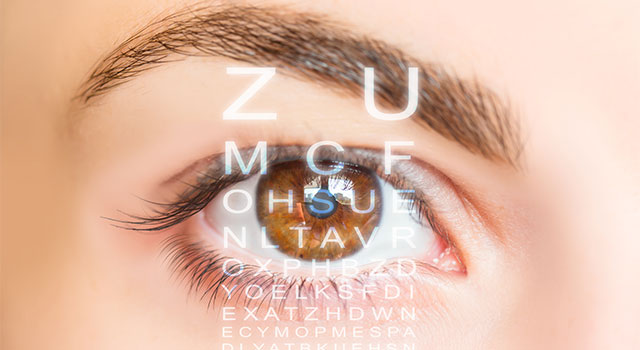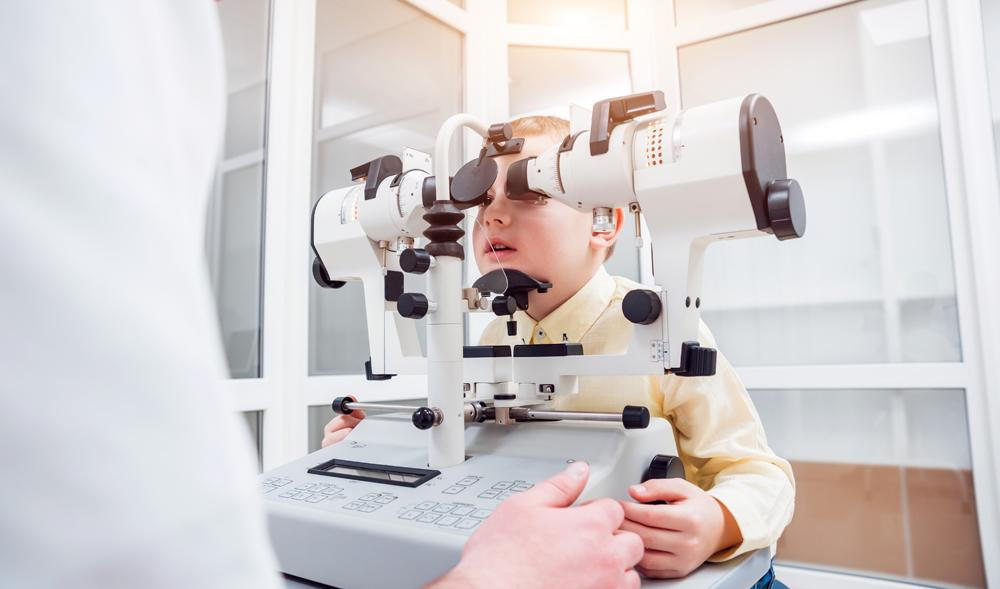The Function of Advanced Diagnostic Devices in Identifying Eye Disorders
In the world of ophthalmology, the utilization of innovative diagnostic devices has revolutionized the very early identification and monitoring of different eye problems. From finding subtle adjustments in the optic nerve to checking the progression of retinal conditions, these technologies play a crucial role in boosting the accuracy and effectiveness of detecting ocular problems. As the demand for specific and timely medical diagnoses remains to expand, the integration of innovative tools like optical coherence tomography and aesthetic field screening has ended up being crucial in the realm of eye treatment. The intricate interplay in between modern technology and ophthalmic methods not just sheds light on complex pathologies yet also opens doors to customized treatment techniques.
Value of Very Early Medical Diagnosis
Early diagnosis plays a crucial duty in the reliable monitoring and therapy of eye problems. Prompt recognition of eye problems is critical as it enables punctual treatment, possibly stopping additional development of the illness and reducing long-lasting problems. By discovering eye conditions at an early phase, doctor can offer ideal therapy strategies tailored to the specific problem, inevitably causing much better outcomes for patients. Moreover, very early medical diagnosis enables patients to accessibility needed support solutions and sources faster, enhancing their overall lifestyle.

Innovation for Spotting Glaucoma
Sophisticated diagnostic modern technologies play an important role in the early discovery and monitoring of glaucoma, a leading source of irreversible loss of sight worldwide. One such technology is optical coherence tomography (OCT), which gives comprehensive cross-sectional photos of the retina, enabling the dimension of retinal nerve fiber layer density. This measurement is necessary in assessing damage brought on by glaucoma. Another sophisticated device is visual field screening, which maps the level of sensitivity of a client's aesthetic area, helping to discover any kind of areas of vision loss quality of glaucoma. In addition, tonometry is used to determine intraocular stress, a significant risk element for glaucoma. This examination is critical as elevated intraocular stress can bring about optic nerve damage. Additionally, more recent technologies like using expert system algorithms in evaluating imaging data are revealing encouraging outcomes in the very early detection of glaucoma. These advanced diagnostic tools enable ophthalmologists to diagnose glaucoma in its beginning, enabling timely treatment and much better administration of the illness to stop vision loss.
Role of Optical Comprehensibility Tomography

OCT's capability to quantify retinal nerve fiber layer density allows for specific and unbiased measurements, assisting in the early discovery of glaucoma even prior to visual area flaws become noticeable. Moreover, OCT technology allows longitudinal monitoring of architectural changes with time, helping with personalized therapy strategies and timely treatments to help maintain clients' vision. The non-invasive nature of OCT imaging likewise makes it a recommended choice for keeping an eye on glaucoma development, as it can be repeated consistently without causing discomfort to the person. In general, OCT plays a vital role in improving the analysis precision and management of glaucoma, eventually adding to far better outcomes for individuals at danger of vision loss.
Enhancing Medical Diagnosis With Visual Area Screening
A crucial part in thorough ocular evaluations, visual field testing plays a pivotal role in improving the diagnostic process for various eye disorders. By evaluating the full extent of a patient's visual area, this examination supplies vital info regarding the functional integrity of read this the whole aesthetic path, from the retina to the visual cortex.
Visual area screening is especially useful in the diagnosis and management of conditions such as glaucoma, optic nerve problems, and different neurological illness that can impact vision. Through measurable dimensions of peripheral and central vision, medical professionals can find subtle changes that might suggest the presence or development of these conditions, even before recognizable signs and symptoms happen.
Furthermore, aesthetic area testing enables the surveillance of treatment efficacy, aiding eye doctors tailor healing interventions to individual clients. eyecare near me. By tracking changes in aesthetic field efficiency in time, medical care carriers can make educated choices regarding readjusting medicines, advising surgical treatments, or implementing various other appropriate procedures to preserve or enhance a person's visual feature
Managing Macular Degeneration

Final Thought
Finally, progressed diagnostic tools play an important function in determining eye conditions early. Technologies such as Optical Coherence Tomography and visual field screening have actually substantially boosted the precision and effectiveness of identifying conditions like glaucoma and macular deterioration. Early discovery permits timely intervention and monitoring of these problems, eventually resulting in better outcomes for people. It is essential for medical care specialists to remain updated on these advancements to provide the very best feasible care for their patients. eyecare near me.
Comments on “Refractive Surgeries in AL: Boost Your Vision with Specialist Treatment”